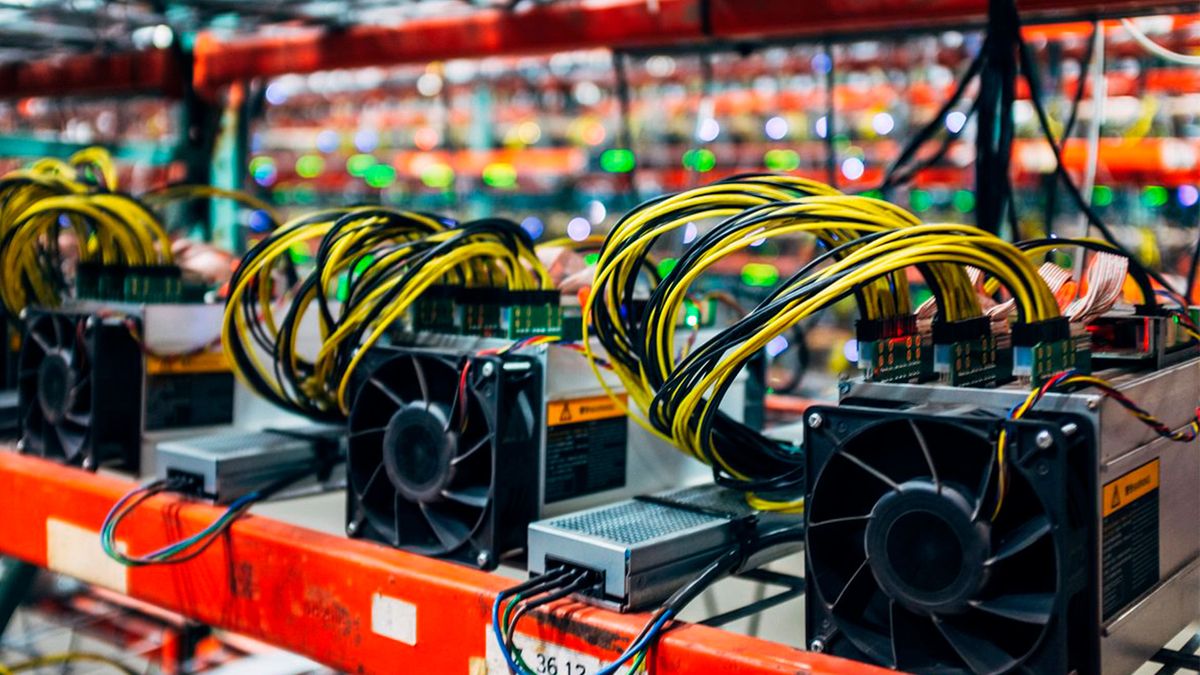With a capacity of 750 megawatts, the largest bitcoin farm in the United States now has more than 100,000 computers in three 350-meter-long buildings. In a few months, it will be seven.
China, on its side, intensified its fight against transactions in bitcoin and against the mining of the currency, which is manufactured in these farms through complex equations solved by thousands of computers.
For these energy-intensive operations, cheap Texas electricity is a key advantage, along with its business-friendly environment and skilled workforce, according to Chad Everett Harris, CEO and co-creator of Whinstone, which owns the Texas farm. Rockdale.
“All the leaders in this industry want to come to Texas!” He smiles with his cap on from one of the temporary booths at his plant.
Originally from New Orleans, he began mining from his home in January 2018, with a computer that earned him $ 60 a day, and in May he sold his farm for 651 million euros to the American company Riot Blockchain.
As of September 2019, China was still the world’s largest producer of bitcoin, with two-thirds of all mining.
But eager to launch its own cryptocurrency, the Chinese government intensifies its offensive every day against the many players in the sector that previously flourished in its territory.
On Wednesday, data released by the University of Cambridge showed that bitcoin mining more than doubled in the United States between May and August this year, accounting for 35.4% of activity.
Sam Tabar, chief strategy officer for mining company Bit Digital, which operates in the United States and Canada, says it began its withdrawal from China in 2020 and accelerated it as the crackdown intensified.
“China’s ban on bitcoin mining was an unintentional gift to the United States,” he says. “Thanks to its ban, an entire industry migrated to North America, with state-of-the-art equipment and knowledge.”
When their investments began to collapse under the Chinese regime, many investors saw the United States as an ideal destination, with its democratic political system, independent judiciary, and sacrosanct protection of private property.
“When you make a long-term investment in a country to accumulate wealth, you want to make sure that it will not be stolen by the state,” said David Yermack, an expert in cryptocurrency at New York University.
However, he warns that the move to the United States is only temporary because northern Europe has clean, cheap and abundant energy, as well as a climate that can help cool down the huge working computer rooms.
Meanwhile, the mining boom in the United States fuels criticism about its environmental cost. Every year bitcoin mining consumes as much electricity as the entire Philippines, according to the University of Cambridge.
“Bitcoin mining in Texas uses less than 2% of all available energy,” says Chad Everett Harris, who believes that the consumption of his Whinstone plant “helps stabilize the network.”
“Our energy profile is the same as that of Ercot,” the Texas power grid operator, whose energy in 2020 was 23% wind, 11% nuclear and 2% solar, with the rest coming from natural gas ( 46%) and coal (18%).
Texas’ unregulated market gives companies a lot of flexibility, says Viktoriya Zotova, an economics professor at Georgetown University. “In principle, they can decide to buy electricity when it is cheap and not buy it when it is expensive.”
Bit Digital is based in Buffalo, New York state. Sam Tabar points out that the city was one of the largest industrial centers in the country before their jobs went to China.
“We have closed the circle,” he concludes with irony.
David William is a talented author who has made a name for himself in the world of writing. He is a professional author who writes on a wide range of topics, from general interest to opinion news. David is currently working as a writer at 24 hours worlds where he brings his unique perspective and in-depth research to his articles, making them both informative and engaging.




